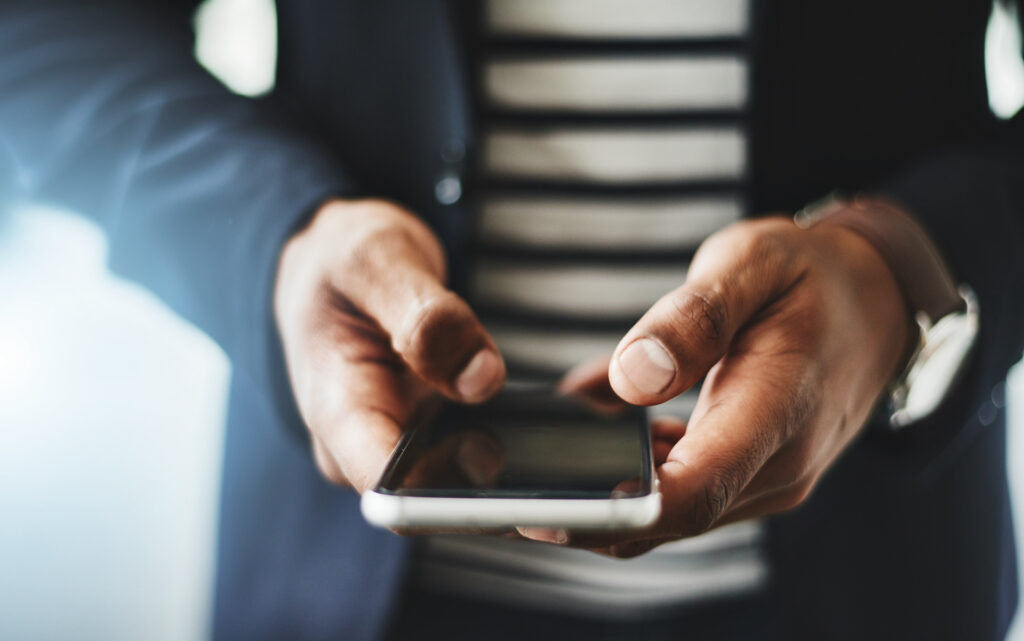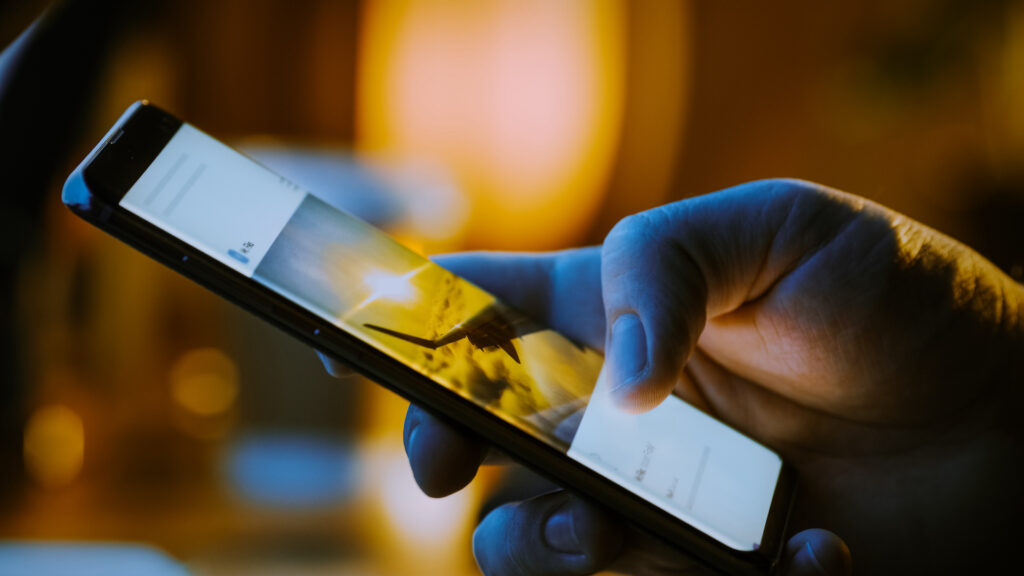According to recent statistics, Canadians spend over 6.5 hours on the internet on average every day. Of that time, over 2 hours are spent on social media. Of course, many people spend much more time than the average, and many of the clients we’ve discussed this with have told us that they spend upwards of 6 hours on social media alone!
And yes, there’s no doubt that social media has constructive and meaningful aspects to it. It allows us to connect with loved ones, build community around shared interests, and arguably broaden our perspectives. Though recently, a growing awareness around echo chambers is calling that last point into question.
But let’s be real. Most of the time we spend on social media consists of continuously and obsessively scrolling through social media feeds. We consume a constant stream of news and information, a lot of which is distressing—a problematic behaviour which is also known as doomscrolling.
What Is Doomscrolling?
The precise origin of the term doomscrolling is not well-documented, but we know that it gained traction early in the COVID-19 pandemic. People found themselves glued to their screens, consuming not just social media but also global news and other online content.
To some extent, being glued to your phone during the early stages of the pandemic was an adaptive behaviour; it was a way to seek out information as a way to stay safe. But with all the issues we saw people facing in terms of their mental health during COVID, the need to strike a balance between staying informed and protecting our mental well-being became quite clear.
Even aside from the pandemic, there’s no shortage of crises happening around the world. From wars to global warming to dysfunction at pretty much every level of society, the internet is like an all-you-can-worry buffet. And it’s easy to over-indulge. So, is it time to put down our phones?

But I Really Like My Phone!
Yes, we get it. Phones are amazing! They’re magical devices that are tied to our autonomy and identity, connecting us to society both locally and globally. Being on our phones is a way people both upregulate and downregulate. It’s safe to say that being on our phones is high on most people’s lists of preferred activities. So, looking at the situation practically: most people don’t want to stop being on their phones, and encouraging people to spend less time on their phones is likely not a winning strategy.
So, what if there was a way we could channel our desire to be on our phone toward a pursuit that was more joyful and rewarding than doomscrolling? That’s where micro-learning comes in.
Micro-Learning? That Sounds Ridiculous.
Micro-learning is not ridiculous at all… Lots of people do it without even realizing that’s what they’re doing! Take, for example, the popular language-learning app Duolingo. Over the course of a few weeks or months, you can increase your proficiency in practically any language. Or take the popular TED talks platform, where you can listen to expert speakers on topics such as education, business, science, tech and creativity. Those are just two popular examples of micro-learning amongst many others!
In essence, micro-learning consists of small, focused lessons that are engaging. We’ve already talked about the way education and learning can support our growth and development, especially for people living with addiction, in recovery, or struggling with mental health. With micro-learning, we can get the benefit of education and learning without having to commit to a set class time or a significant expense, as well as covering a seemingly infinite diversity of topics.
In the context of doomscrolling, think of microlearning as a way you can change your online habits. It’s a way to break the cycle of doomscrolling and use your time online more intentionally. Instead of endlessly scrolling through depressing content, you can watch short videos, use a learning app, or read quick, positive ideas that will move you forward in basically any field of your choosing.

How Do I Get Started In Micro-Learning?
There are a few different approaches to getting started with micro-learning. For example, you may wish to start by finding a topic you want to learn about and then try out different platforms. Some examples include languages, first aid skills, time management, financial literacy, computer programming, and crafting. In that regard, the sky is the limit—unless you want to learn about astrophysics, in which case the sky is not the limit!
For those in recovery or simply wanting to expand their health and wellness practice, there is also a tonne of micro-learning topics to support that journey towards well-being. These include topics like mindfulness, deep breathing techniques, stress reduction, self-compassion, setting realistic goals, and sleep hygiene, to name a few. Learning about these topics a small lesson at a time can contribute to the gradual building of coping mechanisms and improvement in mental health.
Another approach could be to seek out micro-learning platforms and see which ones you like, then explore which topics they cover. This platform-based approach is a way to discover topics that might catch your interest and even turn into a newfound passion. Some popular platforms include Coursera and LinkedIn Learning, as well as various university platforms such as Harvard University’s free courses. Of course, you might also find some learning opportunities on your favourite podcast platform. Browse around; see what you like!
And lastly, try chatting with people and asking them if they’re learning or studying anything. People who are taking a course or learning through a platform will likely be happy to chat with you about what they’re up to. Added bonus: it’s a great way to both find ideas and build relationships!
In Closing
Microlearning can be a valuable tool for anyone to build confidence, find meaning, and form new neural pathways. For people who are living with addiction, in recovery, or who are struggling with mental health, microlearning can also be a way to build skills and knowledge that build a strong foundation for sustained well-being. When coupled with professional support, therapy, and a holistic approach to well-being, microlearning can be a powerful ally.
Are you looking for support?
Sunshine Coast Health Centre and Georgia Strait Women’s Clinic are world-class centers for addiction treatment and mental health. We take an approach that recognizes the importance of the physical, psychological, social and spiritual aspects of individuals in treatment and recovery. If you or someone you know is struggling with substance use or mental health, give us a call today.



